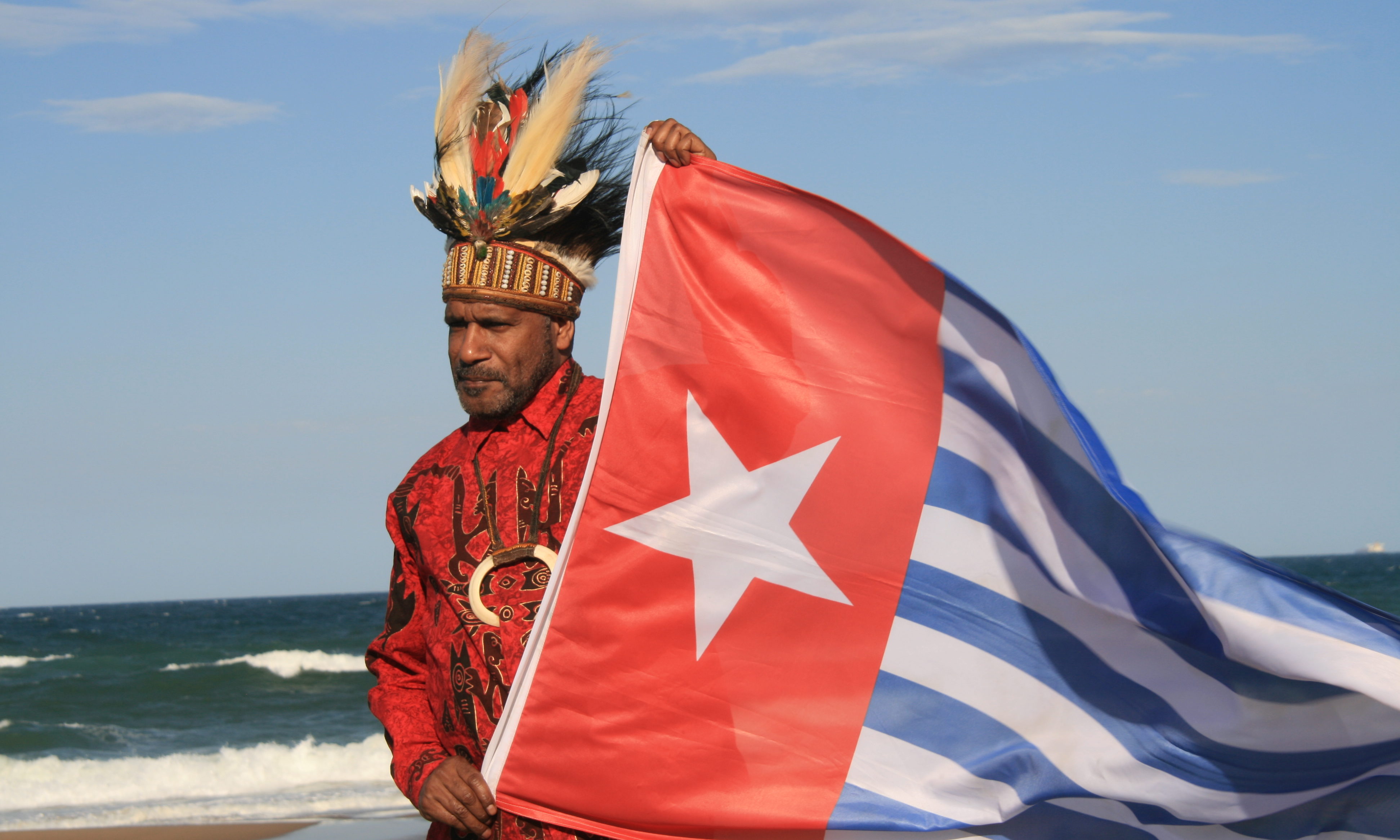BP’s massive project in Tangguh, Bintuni Bay, West Papua contains around 14.4 trillion cubic feet of liquefied natural gas. But the company’s investments and operations are helping to legitimise the region’s illegal occupation by Indonesia.
West Papua is the western half of the island of New Guinea, just 200km north of Australia. It is a region with hundreds of Indigenous tribes and cultures but has been under Indonesian occupation since 1963, with its people experiencing decades of human rights abuses, widespread violence and the suppression of their right to self-determination. Despite all this:
- BP boasts that it is ‘committed to Indonesia’ and is one of the country’s largest foreign investors, giving legitimacy to the occupation of West Papua
- Large revenues generated by BP in West Papua flow to the Indonesian government. In 2012, BP also made $69,000 in security-related payments.
- Foreign media and human rights groups are banned from operating in West Papua, making it difficult to assess the reality on the ground
According to the Free West Papua campaign:
‘over 500,000 civilians have been killed, and thousands more have been raped, tortured and imprisoned’ in West Papua under Indonesia’s occupation. Several studies have highlighted that Indonesia may be involved in an ongoing campaign of genocide against the West Papuans, and at the least, poses ‘serious threats to the survival of the Indigenous people’.
Foreign media and human rights groups are banned from operating in West Papua and consequently, it is difficult to gain a full picture of the situation and fully assess the impacts – unintended or otherwise – that BP’s operations have. Last year, Amnesty International has reported that Papuan activists have been detained and charged with ‘rebellion’ and ‘incitement’ for peaceful gatherings.
However, early in 2018, New Matilda managed to send an undercover reporter into West Papua, which helped shed some light on what is actually happening there. The reporter found that:
- BP security guards are spying on the local community and passing intelligence on ‘disruptive individuals’ to the military.
- Well-armed Indonesian security forces are secretly stationed inside the oil company’s base;
- Retired senior Indonesian police and military officers are running an ‘elite cadre’ of BP guards armed with stun guns and rubber bullets who are given training in how to spot agitators.
BP’s claims to invest in the island development were also exposed as more PR than substance:
- A flagship BP sponsored health clinic serving 3,000 people has been without electricity for six months because the generator was not installed.
- Melanesian villagers are given a cheaper anti-malarial drug while BP employees are treated with a more expensive brand.
- Tuberculosis, a disease linked to poverty and poor housing, is on the rise but since 2002 BP has resettled just a handful of communities and only because it needed their land to build its base.
Benny Wenda, Chairman of the United Liberation Movement for West Papua, has said:
‘BP have never recognised that they operate in the middle of a genocide. They only call it a ‘complex situation’. Is it complex that every day my people are shot by Indonesian security forces, that every day they are tortured? BP never talks about human rights, never recognises how it helps support an illegal occupation of Papuans’ land. This British company has a responsibility to tell the truth about what is happening in West Papua – but they just want to make quick money.’
